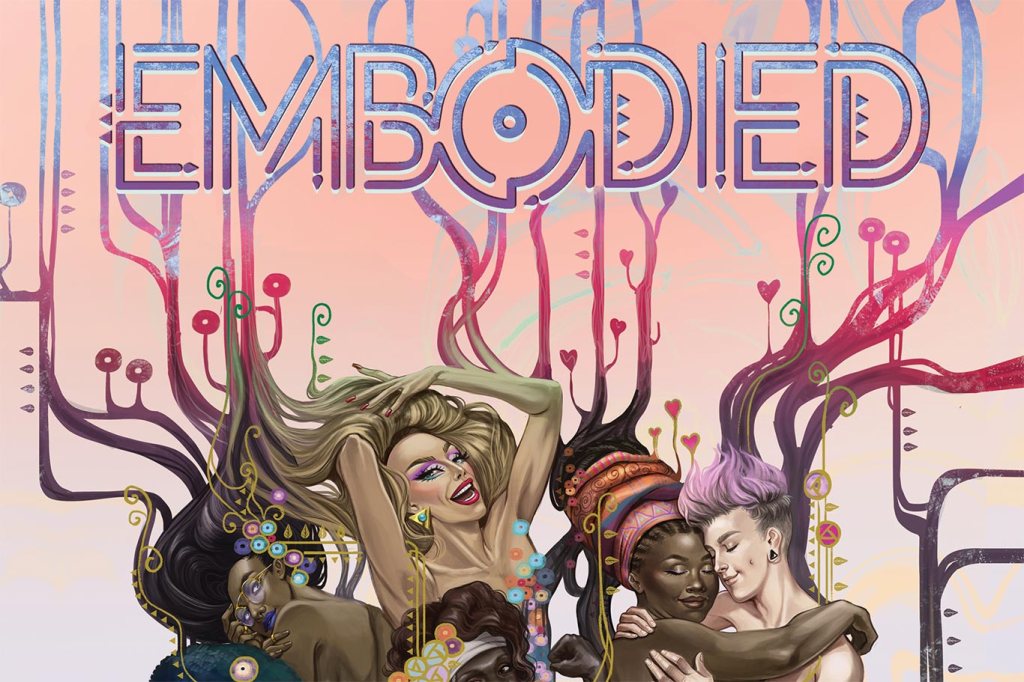
Embodied: An Intersectional Feminist Comics Poetry Anthology,
edited by Wendy and Tyler Chin-Tanner | Tasteful Rude
In 1976, five Black women sued General Motors because the company systemically prevented their advancement. The court, however, ruled in favor of GM because, as Kimberlé Williams Crenshaw put it, “General Motors did hire women—albeit white women—during the period that no Black women were hired [and thus] there was, in the court’s view, no sex discrimination that the seniority system could conceivably have perpetuated.” The court then recommended that the case be consolidated with another race discrimination lawsuit against GM. A person, in other words, could sue for race discrimination or sex discrimination, but not both, because claiming that there was a specific prejudice against Black women, in the court’s words, “clearly raises the prospect of opening the hackneyed Pandora’s box.”
Crenshaw uses this case—and others—in her seminal paper, “Demarginalizing the Intersection of Race and Sex: A Black Feminist Critique of Antidiscrimination Doctrine, Feminist Theory and Antiracist Politics,” published in University of Chicago Legal Forum in 1989. Crenshaw coined the term “intersectionality” because “dominant conceptions of discrimination condition us to think about subordination as disadvantage occurring along a single categorical axis.” A feminism that only addresses the experiences of white women is no true feminism, and an antiracist politic that only addresses Black men is similarly incomplete, as neither on their own addresses the experience and oppression of Black women. Though “intersectionality” has been expanded to include all manner of categorical intersections—including class, sexuality, gender identity, nationality, disability, and age—it began as a legal concept specifically referencing Black women. Continue reading…